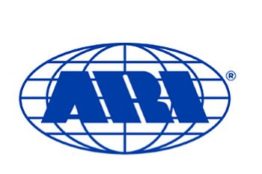|  | |
NAFA Fleet Management Association announces its 2020 Institute & Expo conference is rescheduled for September 18-20, Indianapolis, IN. NAFA members’ safety is important to us. Due to the escalation of severity with COVID-19 and the new Federal Government recommendations and CDC guidelines, NAFA Fleet Management Association’s Board of Directors met last week and agreed to postpone the NAFA 2020 Institute & Expo until September 18-20, 2020. “This was a natural decision for our organization to keep our members and partners safe. NAFA Board of Directors has taken this step to help protect the safety and wellbeing of our attendees, exhibitors and all participants from the coronavirus,” said Patti Earley, CAFM, President, NAFA Fleet Management Association. READ MORE
|
|
 |  | |
Wheels, Inc. Wheels, Inc. won three bronze Stevie® Awards in the 14th annual Stevie Awards for Sales & Customer Service. In the Best Use of Technology in Customer Service category, Wheels’ evolved approach to responsiveness was recognized. As part of the new approach, a new requestment management tool was provided to customers. Data analysis from thousands of customer request inquiries informed the creation of the newly established estimated completion date metric. Another output of the project is the ability to submit, view and track requests in Wheels’ award-winning client user portal, FleetView™. The responsiveness practices were also recognized with a bronze win in the Best Use of Customer Insight Category. Read more at Wheels, Inc.
|
|
 |  | |
The Detroit Bureau Volkswagen wants to rid the world of car accidents by 2050 and will introduce a new vehicle operating system later this year on the new ID.3 EV to help make that happen. The automaker’s next-generation cars will be equipped with the new software, sensors and processors to enable vehicles to anticipate and avoid accidents. The new software-based vehicle operating system will be continually updated as software algorithms improve. “How quickly can data and algorithms improve? Our customers should benefit from deep learning every week, and every day. We are moving from being a device company to being a software company,” Michael Jost, the VW brand’s strategy chief said. Read the article at The Detroit Bureau.
|
|
 |  | |
By Mark Boada, Executive Editor The so-called “mobility revolution” has a variety of dimensions: among the most prominent are connected vehicles, electric vehicles, autonomous vehicles, and ride-hailing as a more convenient alternative to hailing a taxi from a city sidewalk. By all accounts, the momentum for all of these continues to build. One area that’s been faltering, at least in North America, is car-sharing. Over the last few months, a number of players in the business have scaled back their operations, leaving a handful of the biggest metropolitan areas in the U.S. and Canada, and a safe assumption is that the anticipated demand just hasn’t materialized, at least not yet. READ MORE
|
|
 |
|
Making the Right Decisions |
|
 What’s your recipe for fleet success? Your business has fleet management and technology solutions in place to help achieve organizational goals. These objectives likely include budget, productivity, profits, customer satisfaction, and so forth. But do you know which ingredients were used to whip up your company’s current fleet approach? Hopefully the recipe for your fleet’s success was customized to complement your company’s appetite in terms of configuration and priorities. An ingredient check may be in order to ensure your structure is geared for optimal performance. Does your fleet have the fundamental systems and policies in place to operate at a best practices level? Is your business effectively managing the processes to execute on those systems and policies? If you suspect the answer is “no”, it’s time to peek behind the kitchen door. You might see what looks like a mess at first glance, but you’ll know exactly how things have been cooked up—including which stakeholders are stirring the pot and what’s been left on the floor unconsidered. The common phrase, “how the sausage gets made” applies perfectly to this process. While your stakeholders are more concerned with the final fleet dinner plate rather than how you prepared it, what happens in the kitchen can make or break their entire experience. READ MORE |
 |
|
| |
Being Ready for Emergencies |
|
 NAFA Fleet Management Association When fleet operatives prepare for a natural emergency, they require an action plan to remain operational and safe during extreme circumstances. Fleet professionals today face an assortment of natural disasters, both external––such as tornadoes and floods, and internal––such as viruses and mass shootings. The NOAA (National Oceanic and Atmospheric Administration) reports that there were 14 weather and climate disaster events last year alone, with losses exceeding $1 billion each across the United States. Worst-case scenarios are quickly becoming commonplace––from earthquakes, fires, floods, and tornadoes, to viruses such as COVID-19 that panic consumers and disrupt the national supply chain. Just last week, a tornado touched down in Putnam County, Tennessee (about 80 miles East of Nashville) that killed 24 people and required the governor to call a state of emergency, bringing in the National Guard to sift through the rubble. The bottom line? Modern fleet professionals operate under extreme and unpredictable conditions, and they require actionable disaster plans to mitigate the impact of each of the most devastating natural events. Read the article at NAFA.org |
 |
|
 By: Art Liggio, CEO and president of Driving Dynamics Believe it or not, most motorists on the road today are Unconscious Incompetents. What does that mean? In our case, it refers to individuals who are unintentionally putting themselves at risk because they are unaware of the consequences of their actions—common examples include speeding through a yellow light, rolling through stop signs, or weaving in and out of traffic. If an individual never faces any repercussions as a result of these actions, these habits eventually ingrain themselves into his or her everyday driving style. In an attempt to eliminate similar risks and improve driver behavior overall, millions of dollars have been invested to update safety policies, initiate communication campaigns, leverage telematics and adopt vehicle driver assist technologies. Yet, national crash statistics continue to show that, in general, this effort has barely made a dent in lowering incident rates. The only way to induce change is to shift drivers from Unconscious Incompetents to drivers who understand and conduct safe driving skills – also known as Conscious Competents. To understand how to achieve this awareness level, first, we need to look at the deep seeded root cause, which is misguided self-directed learning. READ MORE |
 |
|
| |

